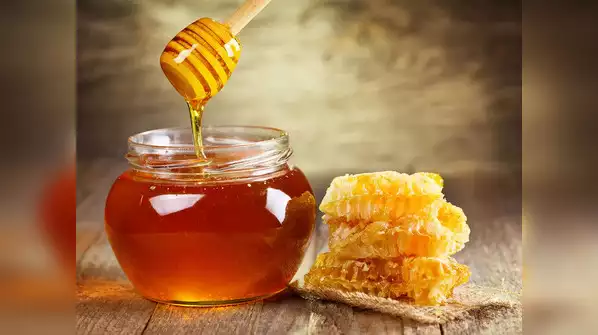Hawaii, with its unique ecosystems and rich biodiversity, offers a fertile ground for sustainable beekeeping practices. As we delve into the world of sustainable beekeeping in Hawaii, it becomes apparent how these practices not only support the environment but also bolster local economies. Through this comprehensive exploration, we aim to illuminate the benefits and methods of sustainable beekeeping on the islands, inviting more people to engage in this rewarding endeavor.
Understanding Sustainable Beekeeping
Sustainable beekeeping is more than just producing honey; it's about maintaining bee health, conserving ecosystems, and ensuring the longevity of bee populations. This approach minimizes harmful practices, supports biodiversity, and integrates traditional methods with modern innovations to create a balanced ecosystem.
Why Sustainable Beekeeping Matters in Hawaii
Hawaii is home to unique flora and fauna, making it a significant location for biodiversity. However, the introduction of invasive species and agricultural pesticides has threatened bee populations. Sustainable beekeeping practices can counter these challenges by:
- Preserving Native Plant Species: Bees play a crucial role in pollinating native Hawaiian plants, which in turn supports local wildlife and preserves ecological balance.
- Enhancing Agricultural Productivity: Bees are essential pollinators for many crops. Sustainable beekeeping can improve crop yields and quality, benefiting local farmers.
- Supporting Economic Growth: Through honey production, beeswax, and other bee products, sustainable beekeeping can boost local economies and create job opportunities.
Key Practices in Sustainable Beekeeping
Adopting sustainable beekeeping in Hawaii means implementing practices that are ecologically and economically viable. Here are some essential steps:
Location Selection
Choosing an appropriate location is vital. Beekeepers should consider areas abundant in native plants and safe from pesticide exposure to establish hives. Proximity to diverse floral sources ensures bees have access to varied pollen and nectar, promoting their health.
Natural Hive Management
Sustainable beekeeping emphasizes using natural and organic methods for hive management. This includes:
- Avoiding synthetic chemicals for pest control.
- Using natural materials like wood for hive construction.
- Implementing rotational grazing of hives to prevent overforaging.
Biodiversity Integration
Encouraging biodiversity within and around apiaries helps maintain ecological balance. Beekeepers can:
- Plant native flowers and shrubs to enhance forage options.
- Support adjacent habitats for other pollinators and wildlife.
Community and Education Initiatives
Building community awareness and education around beekeeping fosters a culture of sustainability. Key initiatives include:
- Hosting workshops and training sessions for aspiring beekeepers.
- Collaborating with local schools to integrate beekeeping into educational programs.
Economic Impact of Sustainable Beekeeping
Sustainable beekeeping not only supports Hawaii's unique ecosystems but also drives significant economic benefits:
- Honey Production and Sales: Hawaiian honey, particularly the rare and coveted Lehua honey, attracts premium prices due to its distinct flavor and local production methods.
- Tourism: Beekeeping tours and experiences attract visitors interested in sustainable practices, offering a unique tourism niche.
- Local Markets: Bee-related products such as beeswax candles, royal jelly, and propolis offer diverse market opportunities.
Challenges and Solutions in Hawaiian Beekeeping
While the benefits are numerous, beekeeping in Hawaii faces challenges such as:
- Varroa Mite Infestations: Implement integrated pest management strategies using natural solutions like essential oils.
- Climate Change: Adapt beekeeping practices to changing weather patterns and promote resilient bee strains.
How You Can Support Sustainable Beekeeping in Hawaii
Supporting sustainable beekeeping is a collective effort. Here's how you can contribute:
- Purchase Local Honey: Buying locally produced honey supports beekeepers and encourages sustainable practices.
- Plant Pollinator-Friendly Gardens: Enhance your garden with native plants that provide nectar and pollen for bees.
- Advocate for Sustainable Practices: Support policies and initiatives that promote pesticide reduction and biodiversity conservation.
Join the Movement for a Healthier Planet
Sustainable beekeeping in Hawaii is a testament to the harmonious relationship between humans and nature. By supporting these practices, we ensure that the islands' ecosystems thrive while fostering economic opportunities for local communities. Join us in this vital journey towards sustainability by embracing eco-friendly practices, supporting local beekeepers, and spreading awareness.
Whether you're a seasoned beekeeper or a curious individual, there's always a way to contribute to this cause. Embrace the buzz of sustainability and help make a lasting impact on Hawaii's environment and economy. Together, we can build a future where bees and humans flourish side by side.
Take Action Today! Visit local apiaries, engage with beekeeping communities, and make informed choices that support sustainable practices. Your efforts can make a buzz-worthy difference!
